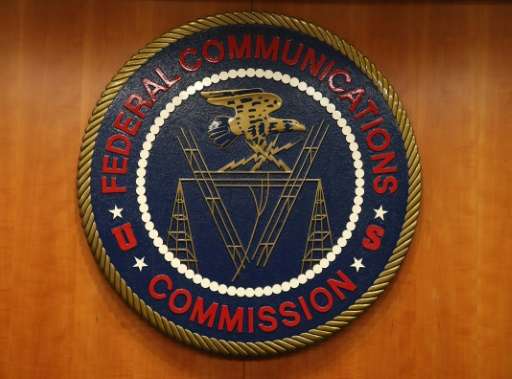US court clash on 'Open Internet' rules, version 3.0

Backers and opponents of "Open Internet" rules clashed Friday in a federal appeals court, in the third round of a battle on how US broadband providers may be regulated.
The so-called "net neutrality" case, one of the most hotly contested tech policy issues in Washington, tests whether online services like Netflix, Yelp and new startups should have equal access through Internet service firms like Verizon and AT&T.
Supporters of the rule argue that it is needed to ensure access to any type of online service without a gatekeeper, while critics say the FCC is using an antiquated, heavy-handed standard that will ultimately stifle a free Internet.
Two previous efforts by the US Federal Communications Commission were tossed out by the appellate court in Washington, but earlier this year the agency tried again with a new twist—reclassifying broadband firms as "common carriers" which can be regulated like phone companies under a 1934 law.
Peter Keisler, arguing on behalf of cable and telecom providers before the three-judge panel, said the FCC overstepped its authority in the rules approved in February.
He said that Congress, in updating telecommunications law in the 1990s, specifically said the Internet should be treated as "a core information service" that should be exempted from regulation.
Judge David Tatel questioned the attorney, saying that Internet service providers were merely transmitting data and as such could be considered similar to phone carriers.
"Aren't (consumers) just buying access to the Internet?" the judge asked.
Keisler responded that consumers "are buying the ability to retrieve information" and as such must be considered a different entity.
Jonathan Sallett, the lawyer arguing for the FCC, said that even though Internet firms use more advanced technology they essentially serve the same function as the phone company by transmitting data from one point to another.

'Opportunity to go anywhere'
Sallett argued that as far back as the 1980s, regulators had determined that "data processing, packet switching and storage were all part of telecommunications."
"It's not what is the technology, it's whether the technology is used to manage a telecommunications service," he said.
The rules, Sallett argued, were implemented, "to provide the opportunity to go anywhere on the Internet" without an Internet service firm deciding what can be delivered, or which services pay for better access.
The plan adopted by a 3-2 FCC vote reclassified broadband Internet service providers as "public utility" carriers, in an effort to address a previous court ruling which said it lacked authority to regulate broadband.
The FCC at the same time promised to steer clear of rate regulation and other provisions of the 1934 law, even though critics contend it may do so in the future.
The new rule also applies the concept to mobile Internet carriers, preventing them from blocking or throttling content for competitive reasons.
President Barack Obama, who called last year for rules enshrining the concept of "net neutrality," welcomed the FCC action. Opponents argued the White House may have improperly pressured the independent regulator.
Online firms and consumer organizations have largely supported the rules, saying a handful of Internet service providers with unusual market power can block or throttle services like Netflix or new startups to favor a rival.
Free speech issue
"Ultimately, what is at stake here is whether cable and broadband providers like Comcast are allowed to manipulate their customers' access to lawful content of their choice, fundamentally distorting the Internet as we know it," said Kate Forscey at the consumer group Public Knowledge.
But the cable and Internet providers contend regulation would limit their ability to invest and innovate.
"The real issue is, and always has been, the FCC's attempt to invent authority to regulate the Internet despite clear direction from Congress that the Internet remain 'unfettered' by regulation," said Berin Szoka at the lobby group Tech Freedom.
Richard Bennett, an American Enterprise Institute fellow, said the FCC could "have a nightmare enforcing its regulations on real networks" as carriers come up with new models for streaming and other services.
Bennett said the battle is far from over.
"It's likely that it won't be the end of the road for the controversy over how to regulate Internet services, as most outcomes at the appellate level beat a path the Supreme Court," he said.
© 2015 AFP


















